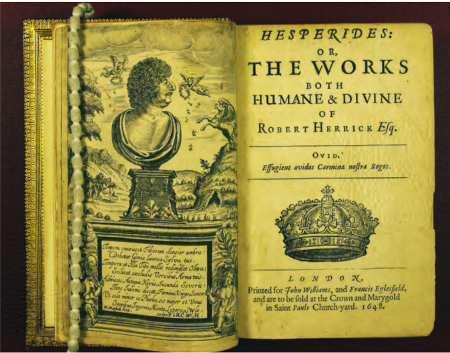

Of Heaven, and hope to have it after all. I write of Groves, of Twilights, and I sing How Roses first came Red, and Lillies White. I sing of Time’s trans-shfiting and I write Of Balme, of Oyle, of Spice, and Amber-Greece. Because Robert Herrick has usually been regarded as a poet of brief, brilliant moments, the 1,130 poems of his Hesperides have never been treated as a. I sing of Dewes of Raines, and piece by piece Subjects: Herrick, Robert 1591-1674 Hesperides. Remains particularly and surprisingly well-preserved tight, bright, clean and especially sharp-cornered.

I write of Youth, of Love, and have Accesseīy these, to sing of cleanly-Wantonnesse. Very good copy in the original stiff-card wrappers edges slightly nicked and dust-dulled as with age. A reproduction of Herricks only publication during his lifetime. I sing of May-poles, Hock-carts, Wassails, Wakes, I sing of Brooks, of Blossomes, Birds, and Bowers: This theme is the sole message of To the Virgins, to make much of. Herrick gives this list the title “The Argument of His Book”: Herrick is the foremost English poetic heir to the classical elegists and their recurrent theme, carpe diem, or seize the day.

English poet Robert Herrick (1591-1674) is best known for his single, yet voluminous book of poems, Hesperides (1648), which includes such perennial favorites as “To the Virgins, to Make Much of Time,” beginning with “Gather ye rosebuds while ye may” and “Delight in Disorder.” The collection is less well known for being, according to the Poetry Foundation, “the only major collection of poetry in English to open with a versified table of contents”: that is, with a list. Excerpt from Poems of Robert Herrick: A Selection From Hesperides and Noble Numbers IN this edition of Herrick quotation is for the first time facilitated.


 0 kommentar(er)
0 kommentar(er)
